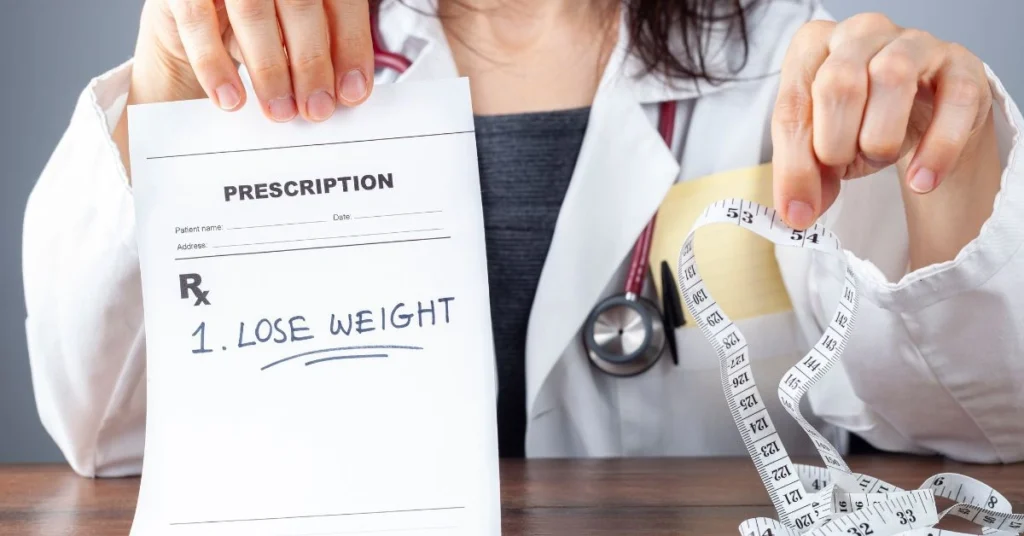Zepbound: Powerful for Effective Weight Loss
Losing weight is a challenge for many people. Diets and exercise plans don’t always deliver lasting results. For some, medical intervention may be a helpful addition to their weight-loss journey.
Zepbound is a weight-loss medication that has been gaining attention. It works by reducing your appetite and making you feel full for longer periods. This can help you eat less and stay on track with your weight-loss goals.
The science behind Zepbound is simple but effective. It targets the way your brain and body respond to hunger. By regulating these signals, Zepbound helps control cravings and prevents overeating.
This medication is designed for people who struggle with obesity or have a high BMI. It is not a quick fix or a replacement for healthy habits. Instead, it works best when combined with a balanced diet and regular physical activity.
Before starting Zepbound, it’s important to talk to a healthcare provider. They can determine if it’s the right choice for you. Your doctor will consider your medical history, current health conditions, and other factors.
Understanding how Zepbound works can help you make informed decisions. Like all medications, it has potential benefits and side effects. Learning about these aspects ensures you use Zepbound safely and effectively.
In this blog, we’ll explore everything you need to know about this weight-loss treatment. From its mechanism and usage to its risks and benefits, this guide covers it all. Let’s dive deeper into how this medication can support your weight-loss journey.
| Aspect | Fact/Details | Figures/Details |
|---|
| Medication Name | Zepbound | – |
| Primary Purpose | Weight loss | – |
| Mechanism of Action | Reduces appetite, prolongs fullness, influences brain signals regulating hunger | Targets hormones related to hunger and satiety; blocks overeating signals. |
| Intended Users | Individuals with high BMI, obesity, or related health conditions like type 2 diabetes or high blood pressure | Especially recommended for those struggling with diet and exercise alone. |
| Usage Instructions | Typically taken once a day, with or without food | Once daily as prescribed; take at the same time each day. |
| Dosage Guidelines | Take as prescribed, at the same time each day. Do not adjust the dose yourself. | Dosage determined by doctor; don’t exceed the prescribed amount. |
| Recommended Dosage | Typically one dose per day | – |
| Side Effects (Common) | Mild digestive issues (nausea, dry mouth, constipation), headaches, dizziness, mood swings, sleep disturbances | Common side effects may be temporary and improve with hydration or dietary adjustments. |
| Side Effects (Serious) | Cardiovascular issues (chest pain, rapid heartbeat, shortness of breath), allergic reactions (swelling, itching, difficulty breathing) | Rare but serious; immediate medical attention required for severe symptoms. |
| Eligibility Criteria | High BMI, obesity, related health conditions, struggling with weight loss via diet/exercise alone | Not for individuals with normal BMI or under 18 years old. |
| Special Considerations | Pregnant/breastfeeding women, heart disease, kidney problems, other medications | Consult a doctor for approval. Avoid alcohol while using this medication. |
| Effectiveness Tips | Pair with balanced diet, exercise, and hydration | Monitor progress and follow doctor’s advice. |
| Potential Benefits | Supports faster weight loss, improves portion control, boosts confidence, reduces cravings | Helps to eat smaller portions and reduces emotional/boredom eating. |
| Interaction with Other Meds | Possible interactions with other medications or supplements | Always inform the healthcare provider about other medications being taken. |
| Usage Duration | Long-term usage may be recommended based on progress | Duration decided by healthcare provider based on progress and lifestyle adjustments. |
| Notable Dos and Don’ts | – Pair with diet and exercise – Don’t share with others – Don’t take with alcohol | – |
| Monitoring Health | Regular follow-up with healthcare provider to track progress and manage side effects | – |
| Side Effect Management | Stay hydrated, eat fiber-rich foods, and report persistent issues to doctor | – |
| Consulting Healthcare Provider | Essential before starting medication | – |
| Conclusion | Medication is effective but should complement healthy lifestyle choices | Best results with balanced diet, exercise, and consistent monitoring. |
| FAQs Summary | Addresses common concerns about how the medication works, who it’s suitable for, side effects, dosage, and long-term use. | – |
How Zepbound Works: Mechanism of Action

Targeting Hunger and Appetite
This medication works by reducing your appetite. It helps you feel less hungry throughout the day. This is especially helpful for people who struggle with constant cravings or overeating.
The treatment interacts with certain hormones in your body that control hunger. These hormones signal your brain to feel full after eating smaller portions. As a result, you consume fewer calories without feeling deprived.
Prolonging the Feeling of Fullness
One of its key effects is keeping you full for longer periods. After taking the medication, you may notice that you don’t feel the need to snack as often. This helps you stick to meal plans and avoid overeating.
By slowing down digestion, the treatment ensures that food stays in your stomach longer. This extended satiety supports better portion control and reduces calorie intake. It’s an effective way to develop healthier eating habits.
How It Affects the Brain
The medication influences specific parts of the brain that regulate hunger. It blocks the signals that make you feel the urge to eat even when you’re not hungry. This helps curb emotional eating or eating out of boredom.
These changes in brain activity help you make more mindful choices about food. Over time, this can lead to significant weight loss. The treatment acts as a supportive tool for managing cravings and staying focused on your goals.
Who Can Benefit From It?
This treatment is intended for people with a high Body Mass Index (BMI). It’s especially useful for individuals with obesity or related health conditions, such as type 2 diabetes or high blood pressure.
Doctors may recommend it for people who haven’t achieved results through diet and exercise alone. However, it’s not suitable for everyone. A healthcare provider can help determine if this option is the right choice based on your specific needs.
Understanding how this medication works is the first step to using it effectively. This knowledge can help you approach weight loss with confidence and clarity. In the next section, we’ll discuss how to use it and the importance of proper dosage.
Proper Usage and Dosage Guidelines

Recommended Dosage
This weight-loss treatment should be taken exactly as prescribed by your doctor. Typically, it is taken once daily, but your dosage may depend on your health needs. Always follow the instructions provided by your healthcare provider.
It is important to take it at the same time every day. This helps maintain consistent levels of the medication in your body. If you miss a dose, take it as soon as you remember unless it’s close to the time for your next dose.
How to Take It
This medication is usually taken orally with a glass of water. You can take it with or without food, depending on your doctor’s advice. Make sure not to crush, chew, or break the treatment unless instructed otherwise.
Avoid taking more than the recommended dose, as this can increase the risk of side effects. If you feel the medication isn’t working, talk to your doctor instead of adjusting the dosage yourself. Staying consistent is key to seeing results.
Dos and Don’ts of Using It
- Do: Pair the treatment with a balanced diet and regular exercise for the best results.
- Do: Monitor your progress and report any unusual symptoms to your doctor.
- Don’t: Take the medication with alcohol, as it may interfere with its effectiveness.
- Don’t: Share the medication with others, even if they have similar weight-loss goals.
Special Considerations for Certain Groups
Pregnant or breastfeeding women should avoid this treatment unless approved by a doctor. The medication may not be safe for individuals under 18 years of age. People with certain medical conditions, such as heart disease or kidney problems, should discuss potential risks with their doctor.
If you are taking other medications or supplements, inform your healthcare provider. This weight-loss treatment can interact with other substances, which may reduce its effectiveness or cause harmful side effects. Open communication with your doctor ensures safe and effective use of zepbound (lepbound).
Tips for Maximizing Effectiveness
To get the most out of this medication, focus on making healthy lifestyle changes. Stick to portion-controlled meals, avoid processed foods, and stay active. Hydration is also important, so make sure to drink plenty of water throughout the day.
Keep track of your progress by recording your weight and any changes in your appetite. Regular follow-ups with your doctor will help you stay on track and adjust your plan if needed. Using the treatment responsibly can make it a valuable tool in your weight-loss journey.
In the next section, we’ll explore the benefits of this medication and the potential side effects you should be aware of.
Benefits and Potential Side Effects

Benefits of Using This Weight-Loss Treatment
- Supports Faster Weight Loss
The medication helps you eat less by controlling your appetite and cravings. By consuming fewer calories, you can lose weight more effectively. This makes it a useful tool for people who struggle to control portions or snacking. - Improves Portion Control and Eating Habits
The treatment helps you feel full for longer periods after eating smaller meals. This encourages healthier eating habits and reduces the need for late-night snacking. Over time, it can help you develop better control over your diet. - Boosts Overall Confidence and Energy
Many users report feeling more energetic and confident as they start losing weight. Achieving steady progress can motivate you to stick to your goals. It can also improve your quality of life and self-esteem.
Common Side Effects
- Mild Digestive Issues
Some people experience nausea, dry mouth, or constipation while taking the medication. These symptoms are usually temporary and improve over time. Staying hydrated and eating fiber-rich foods can help ease these effects. - Headaches or Dizziness
This treatment may cause mild headaches or dizziness, especially when starting. These side effects can often be managed by resting and avoiding sudden movements. If they persist, consult your doctor. - Changes in Mood or Sleep Patterns
A small number of users report mood swings or difficulty sleeping. These symptoms may vary from person to person and should be monitored closely. Always inform your doctor if you notice significant changes.
Rare but Serious Side Effects
- Cardiovascular Risks
In rare cases, this medication can affect heart rate or blood pressure. If you experience chest pain, rapid heartbeat, or shortness of breath, seek medical attention immediately. Regular check-ups can help minimize these risks. - Allergic Reactions
Allergic reactions, though uncommon, may occur. Symptoms include swelling, itching, or difficulty breathing. Stop taking the medication and contact your doctor if you notice any of these signs.
Managing and Mitigating Side Effects
Most side effects are mild and temporary. You can manage them by following your doctor’s instructions and maintaining a healthy lifestyle. For serious or persistent side effects, seek medical advice immediately.
Your doctor may adjust your dosage or recommend additional strategies to reduce side effects. It’s important to stay in regular communication with your healthcare provider. They can help ensure the treatment works safely and effectively for you.
Balancing Risks and Benefits
This medication can be a powerful tool for weight loss when used correctly. While side effects are possible, they are often manageable with proper care. Understanding these risks and benefits can help you make informed decisions about your treatment.
In the next section, we’ll discuss how to determine if this weight-loss option is the right choice for you. We’ll also cover key factors to consider before starting the medication.
Is It Right for You? Key Considerations Before Starting

Consulting Your Healthcare Provider
Before starting this weight-loss option, schedule an appointment with your doctor. They will evaluate your medical history and current health conditions. This ensures the medication is safe and suitable for you.
Discuss any concerns or questions you have during the consultation. Share details about other medications or supplements you are taking. This helps your doctor assess potential interactions or risks.
Understanding Eligibility
This treatment is typically recommended for individuals with a high Body Mass Index (BMI). It is especially helpful for those with obesity or related health issues, such as type 2 diabetes or high blood pressure.
If you have tried diet and exercise without significant results, this option may be worth exploring. However, it is not meant for casual weight loss or for individuals with a normal BMI. Your doctor can help determine if it aligns with your health needs.
Setting Realistic Expectations
This treatment is not a quick fix for weight loss. It works best when combined with a balanced diet, regular exercise, and healthy habits. Be prepared
Conclusion
Losing weight is often a complex journey, and while diet and exercise are essential, some individuals may need additional support to reach their goals. The weight-loss medication discussed here provides an effective tool for those struggling with obesity or related health conditions. By helping control appetite, prolonging the feeling of fullness, and influencing hunger signals, it assists in reducing calorie intake without the feeling of deprivation.
However, it’s crucial to remember that this medication should complement, not replace, a healthy lifestyle. A balanced diet, regular exercise, and consistent monitoring are key to ensuring the treatment’s effectiveness. Always consult with a healthcare provider before starting any new treatment to make sure it’s the right fit for your individual needs.
How does this weight-loss medication work?
This medication works by targeting the hormones that control hunger, helping you feel full after eating smaller portions. It also prolongs the feeling of fullness, which reduces the likelihood of overeating or snacking between meals.
Who is this medication suitable for?
It is generally recommended for people with obesity or those who have a high BMI. It may also be beneficial for individuals with health conditions like type 2 diabetes or high blood pressure. It’s important to consult with a healthcare provider to see if it’s right for you.
Can I expect immediate results?
This medication is not a quick fix. It works best when combined with healthy eating habits and regular physical activity. Patience and consistency are key for achieving long-term results.
Are there any side effects?
Common side effects include mild digestive issues, headaches, dizziness, and changes in mood or sleep patterns. Rare but serious side effects may include cardiovascular issues or allergic reactions. It’s important to monitor your health and consult your doctor if any side effects persist.
How do I take this medication?
This medication is typically taken once a day, either with or without food, as prescribed by your doctor. It’s essential to follow your doctor’s instructions on dosage and not to adjust the amount without professional guidance.
Can this medication be used alongside other treatments?
If you’re taking other medications or supplements, it’s important to inform your healthcare provider. This medication may interact with other substances, so your doctor will help ensure it is safe to use in combination with your current regimen.
Will I need to continue taking this medication long-term?
The duration of use will depend on your weight-loss progress and your doctor’s recommendation. This medication is intended to assist in your weight-loss journey, but maintaining healthy habits is crucial for long-term success.
Is this medication suitable for everyone?
This treatment is not suitable for individuals under 18 years old, pregnant or breastfeeding women, or those with certain medical conditions like heart disease or kidney problems. Always consult your doctor to assess if it’s appropriate for your health status.

